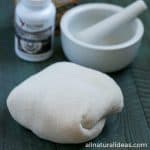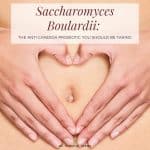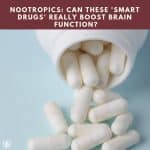Natural thyroid supplements are more popular these days for chronic fatigue and weight gain. But are they necessary? Moreover, are they safe to take?
In the alternative/natural health world, there’s an epidemic that’s to blame for thousands if not millions of people walking around like zombies. It’s “hypothyroidism.”
Otherwise known as “sluggish thyroid,” an underfunctioning of this gland results in chronic fatigue, weight gain, and dry skin and hair loss. Women who have hypothyroidism may menstruate excessively.
Furthermore, those who have a sluggish thyroid are frequently cold and pale in complexion. Also, those with hypothyroidism can have growths (goiters or nodules), which may (or may not) be visible around the neck.
Natural thyroid supplements are often recommended for this condition. But are these appropriate and are they safe to take?
What is Hypothyroidism?
The thyroid gland is in the front of your neck. One of the main functions of it is regulating metabolism. That’s why people with hypothyroidism can easily gain weight.
With a sluggish thyroid, the gland struggles (or even stops) making the hormone, thyroxine. And this is why many people also feel cold.
Consider the analogy that the thyroid gland is the body’s thermostat. With not enough thyroid hormone circulating in the blood, your thermostat (the the thyroid gland) can’t warm you up.
In light of the fact that many people experience the above symptoms, natural thyroid supplements have become more popular. Approximately $40 billion per year of natural health supplements are sold around the globe. [SOURCE]
Thus, one may assume that these supplements are doing brisk business. Sales figures specifically for these thyroid support supplements are hard to come by.
However, without doubt, the household familiarity of the term ‘hypothyroidism’ is a major contributor to the increase in sales of natural thyroid supplements.
But are natural based thyroid support supplements necessary? After all, it’s the pituitary gland that tells the thyroid to produce more or less thyroid hormone?
Furthermore, are these natural based supplements safe? If you strongly suspect you have a sluggish thyroid, is self-medicating with thyroid supplements wise?
And are all-natural ways to improve thyroid gland function better than medication? Medications for under-functioning thyroid (and for thyroids that have been removed) contain synthetic thyroid hormone. Therefore, can’t synthetic thyroid hormone correct the problem?
Problems with Thyroid Testing
Whew. That’s a lot of questions to answer about natural thyroid supplements. To be sure, it’s a very complex issue. And there are a few problems.
Let’s get one thing out of the way first…. If you have any of the above symptoms, including weight gain, fatigue and often feel cold, don’t assume you have hypothyroidism. Get tested by a doctor or other health professional. But this presents another problem: testing accuracy….
According to ConsumerLab.com, until the 1990s, hypothyroidism was confirmed by a lab test. And this test measures thyroid hormone levels in the blood. But this only measured inactive thyroid hormone, not active.
Furthermore, normal thyroid levels vary widely between people and lab test ranges are based on people who had abnormal thyroid function. In light of this, the testing did not reliably diagnose hypothyroidism.
However, an improvement in testing procedures emerged in the 1990s. The new test, still in wide use by doctors today, measures a different hormone.
The hormone commonly tested is TSH. “TSH” stands for thyroid stimulating hormone. If you recall from above, the pituitary gland tells the thyroid to produce more or less thyroid hormone. And it does this by releasing TSH.
With this new test that measures TSH levels, all’s good in diagnosing hypothyroidism? Well, not quite. You see, to get an accurate total picture of how your thyroid is functioning, you need more than TSH level tested.
More accurate is also testing T3 hormone (the active thyroid hormone). And not just one measurement of T3. In fact, you should have your total and free T3 levels tested.
In addition, some people may have normal thyroid levels. But they still feel out of whack. It’s for this reason that in this scenario, taking thyroid medication (or natural thyroid supplements) may make someone feel better.
Natural Thyroid Supplements: Why They May Not Work
However, after taking medication or a natural thyroid supplement, some people still feel tired. Why? Blame it on Hashimoto.
Hashimoto’s thyroiditis is the most common low thyroid condition. It’s an autoimmune disease that attacks the thyroid.
According to SelfHacked.com, if you bring thyroid hormones up with natural thyroid supplements (or synthetic thyroid hormones) and you’re still tired, your problem is not your thyroid gland.
The more likely issue for these conditions is chronic inflammation. That’s why it’s important to consume foods and drinks that will not elicit an inflammatory response in the body.
That means no obvious culprits: sugar, gluten, dairy, alcohol, processed foods, along with vegetable and seed oils. But other less obvious offenders may be foods you think are healthy.
Certain foods like legumes contain lectins. Lectins are compounds that interfere with nutrient absorption. And when you can’t properly absorb nutrients, inflammation occurs.
Oxalates are another type of compound in healthy foods that may produce inflammation. Spinach contains oxalates. Yes, spinach can cause inflammation.
Inflammation may be the root cause of your fatigue. Not your thyroid.
Without doubt, it’s maddening to keep track of what’s good for you and what’s not. That’s why, if you have the money, go see a functional medicine doctor.
Natural Thyroid Supplements: The Mainstream Point of View
Similar to scoffing at adrenal fatigue, mainstream medicine disses natural thyroid supplements. That’s because, “Less than 2 percent of people have hypothyroidism,” Marvin M. Lipman, M.D. tells ConsumerReports.org.
Furthermore, only prescription extract, not natural based supplements are supported by clinical research.
However, ConsumerReports.org says the following natural thyroid support supplements are used, despite them having no research to support their use: Bacopa monniera (brahmi), traditional Chinese herbal medicine (for boosting Yang energy), vitamin B3, and zinc.
But there is one mineral supported by research that may help the thyroid, says ConsumerLab.com. And that mineral is selenium.
Over 300 people with hypothyroidism in six studies showed improvements after taking 200 micrograms per day of selenium for three months. The improvements include having lower levels of antibodies.
It’s the antibodies in Hashimoto’s disease attack the thyroid. In addition, the treatment group reported better mood and sense of well-being.
Another common natural thyroid supplement is iodine. The thyroid gland takes iodine, a mineral, and converts it into thyroid hormone.
Thus, in theory, it makes sense that if you suspect you have a sluggish thyroid, you should consume more iodine. However, health experts strongly advise against this.
Although iodine deficiency does cause low thyroid levels, taking iodine will not help if you are not deficient in it. And the vast number of people are not deficient in iodine.
Simply for the fact that iodine is abundant in many foods in the developed world. Especially, table salt.
Underactive thyroid supplements
To reiterate, do not self-diagnose for hypothyroidism. And do not take thyroid supplements unless a health professional prescribes or suggests them.
But there are some strategies that may improve your energy levels. Keep in mind, these strategies may not directly influence the amount of thyroid hormones your pituitary and thyroid glands are releasing….
First, make sure you do not have estrogen dominance. One supplement that may help prevent estrogen dominance is DIM.
DIM is a compound. It encourages “good” estrogen balance in the body. In addition, adaptogenic herbs may help normalize the amount of stress hormones in your body.
Chronic stress, of course, may cause fatigue. In addition, there are other vitamins that may support adrenal and thyroid gland function. You can also try a hormone balancing diet plan.
And here’s another three-letter acronym supplement that may help your overall well-being. NAC. NAC improves glutathione levels in the body. Glutathione is your internal, natural antioxidant.
Natural thyroid supplements for hypothyroidism: more cause for concern
ConsumerReports.org says that it’s not possible to know if a supplement contains thyroid hormones. At least not from reading the label.
However, a 2013 study published in the journal Thyroid found that nine out of 10 supplements marketed for thyroid health and support contained real hormones.
And here’s the problem with taking real hormones….
Thyroid hormone levels need to be very precise. Not too much. And not too little. But taking supplements that contain raw thyroid hormones (from a cow or pig) can alter those levels in unpredictable ways,
ConsumerReports.org cautions. Health problems can arise if levels are even slightly off.
Best thyroid supplements for weight loss
Perhaps it’s not your thyroid to blame for weight loss. Maybe it’s unbalanced hormones causing weight gain.
Instead of relying on thyroid supplements, consider a holistic health plan. There are several available to choose from.
One example is The Myers Way. This six-step program was created by Amy Myers, M.D. It consists of healing the gut; optimizing the diet; taming toxins; healing infections; relieving stress and balancing hormones.
Myers herself was affected by a thyroid disorder. Although, her problem was the opposite of this article topic; Myers’ thyroid was too active. Still, her program may help those with low thyroid hormone.
In conclusion, the best natural thyroid supplement may be none at all. Especially if you’re considering taking a glandular extract.
“Do not take thyroid supplements,” says ConsumerReports.org. “If you suspect that you have a thyroid condition, head to your doctor’s office instead of the vitamin or natural-foods store. Getting the right diagnosis and treatment is the key to combating weight gain, exhaustion, and brain fog.”
However, as mentioned above, diagnostic testing for thyroid hormone levels are not always accurate. The best approach may be a holistic one.
It’s recommended to get TSH (which the pituitary releases) levels tested. As well as free and total T3 levels tested.
Also, reduce inflammation from food and drink (avoid gluten and dairy, both of which have antibodies similar to those that attack the thyroid). Consult a naturopathic doctor or nutrition expert to help you avoid certain foods that hinder digestion. Perhaps take a selenium supplement. And do lots more research.








